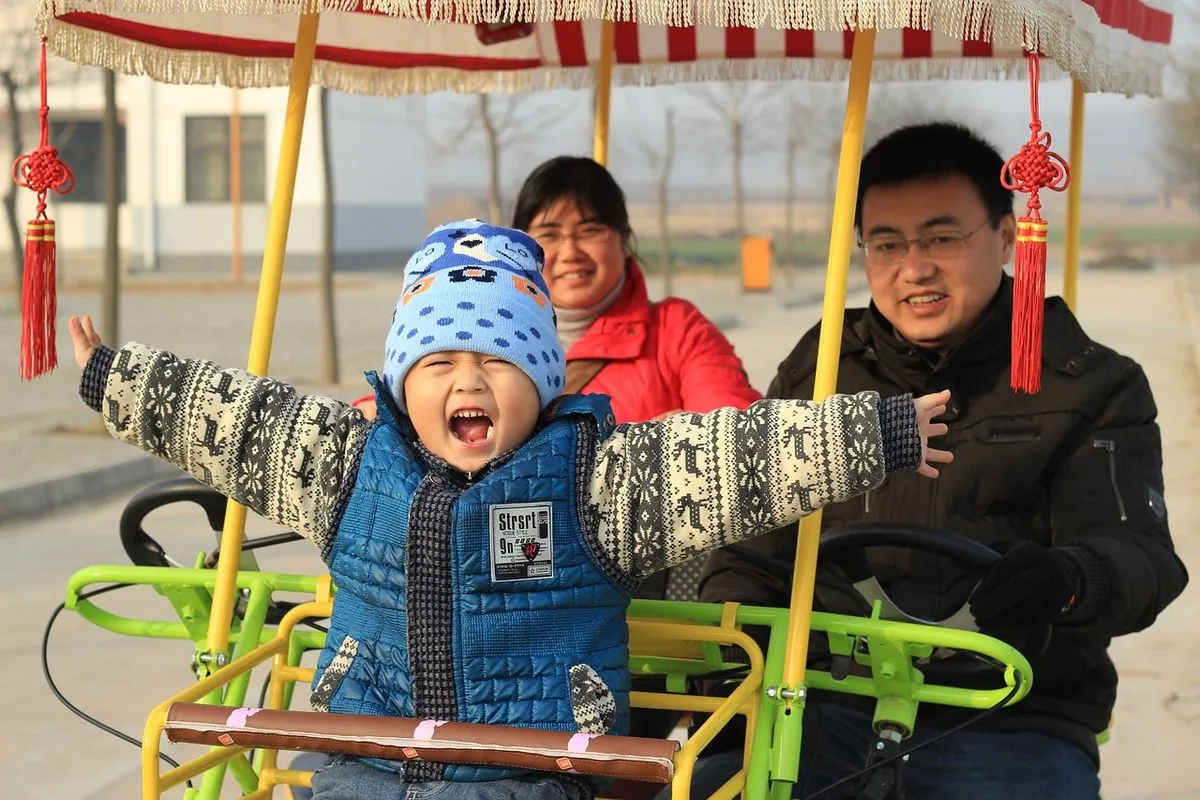Chinese Families Seek Educational Refuge in Thailand's Chiang Mai
Chinese parents are relocating to Chiang Mai, Thailand, seeking relief from China's intense academic pressure. The move offers quality international education and a more relaxed lifestyle for their children.

In recent years, a growing number of Chinese families have been relocating to Chiang Mai, Thailand, in search of a more balanced educational experience for their children. This trend reflects broader issues within China's highly competitive education system and the desire for a less stressful lifestyle.
DJ Wang, a parent who moved his family from Wuhan to Chiang Mai, describes the stark contrast in academic pressure between the two locations. In China, his son William was regularly completing homework until midnight by third grade. Now in Chiang Mai, William, aged 14, finishes his work much earlier and has time to pursue personal interests.
"You went from traveling lightly to carrying a very heavy burden. That sudden switch, it was very hard to bear."
The exodus of Chinese families to Thailand for education is part of a larger trend of Chinese nationals seeking opportunities abroad. This includes wealthy entrepreneurs, political activists, and young professionals looking to escape China's ultra-competitive work culture.
Chiang Mai, founded in 1296 and now home to around 1 million people in its metropolitan area, has become a popular destination for these families. The city offers quality international schools at lower costs compared to major Chinese cities, with fees typically 30-50% less than those in Beijing or Shanghai.
Jenson Zhang, who runs an education consultancy called Vision Education, notes that Southeast Asia is an attractive option for Chinese parents due to its proximity, convenient visa policies, and welcoming attitude towards Chinese people. Thailand's visa policy allows Chinese citizens to stay for 30 days without a visa, facilitating easier relocation.
The trend has been gaining momentum over the past decade, with a notable surge in interest during the 2022-2023 academic year. Grace Hu, an admissions officer at Lanna International School in Chiang Mai, reports that inquiries doubled during this period compared to the previous year.

The move to Thailand allows Chinese students to escape the intense pressure of China's education system, which culminates in the gaokao, the college entrance exam taken by over 10 million students annually. This high-stakes test often leads to practices like "peidu" (accompanied studying), where parents dedicate themselves full-time to supporting their child's education.
In contrast, the educational environment in Thailand provides more time for personal development and hobbies. Jiang Wenhui, who moved from Shanghai to Chiang Mai in 2023, has seen a significant change in her son Rodney's approach to learning. Previously struggling with mild attention deficit disorder, Rodney has now taken up guitar and piano, and actively seeks to improve his English vocabulary.
The shift in environment has also changed parents' perspectives on education. Wang now views poor grades as opportunities for improvement rather than insurmountable obstacles to future success.
While the move to Thailand offers many benefits, it's not without challenges. Some families struggle with the decision to leave China's competitive education system, fearing they might be putting their children at a disadvantage. However, for many, the opportunity for a more balanced life outweighs these concerns.
As this trend continues, it highlights the ongoing debate about the pressures of China's education system and the lengths to which families will go to seek alternatives. With Thailand welcoming over 11 million Chinese tourists in 2019 (pre-pandemic), the country's appeal as an educational destination for Chinese families seems likely to grow.


































